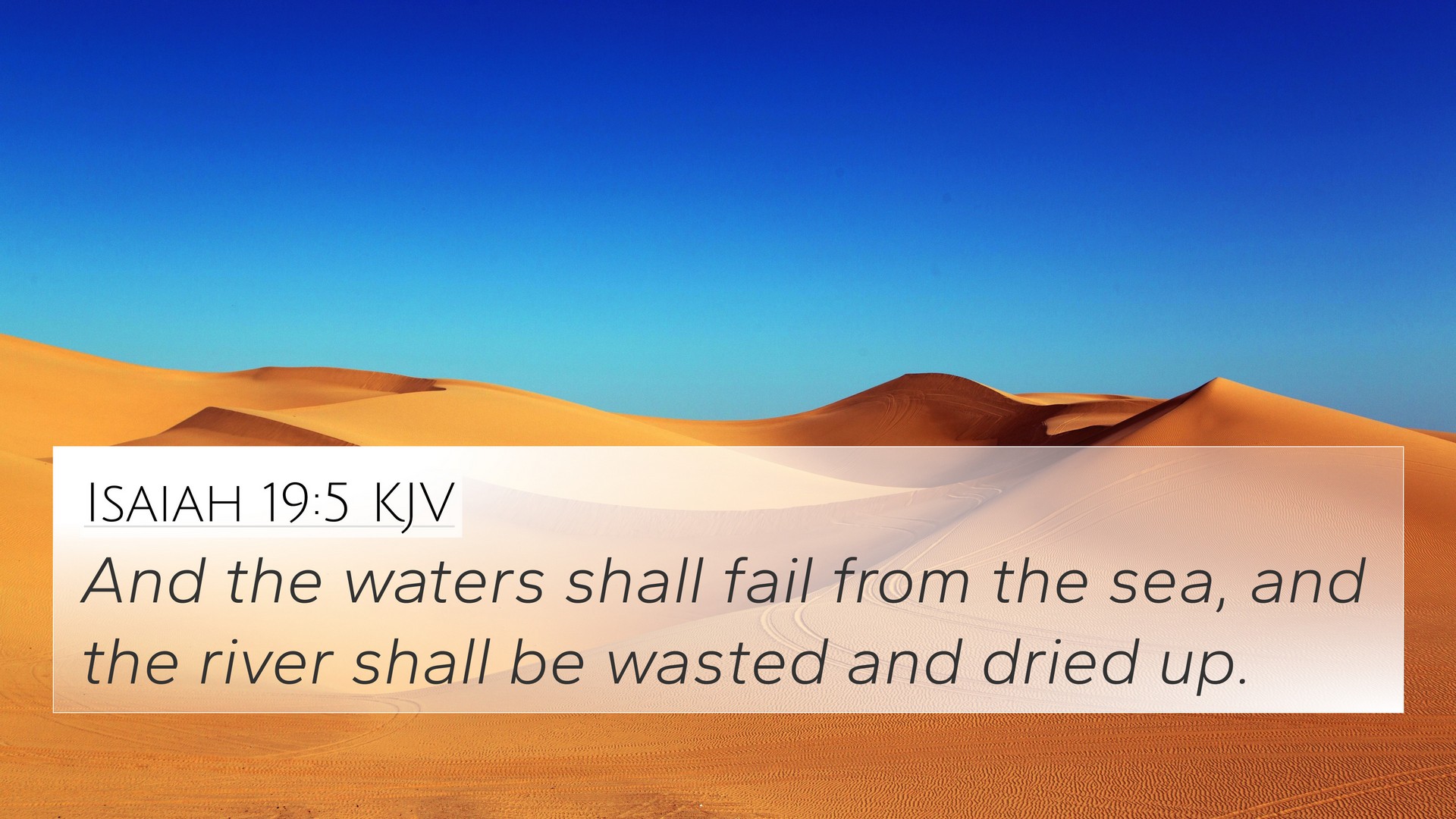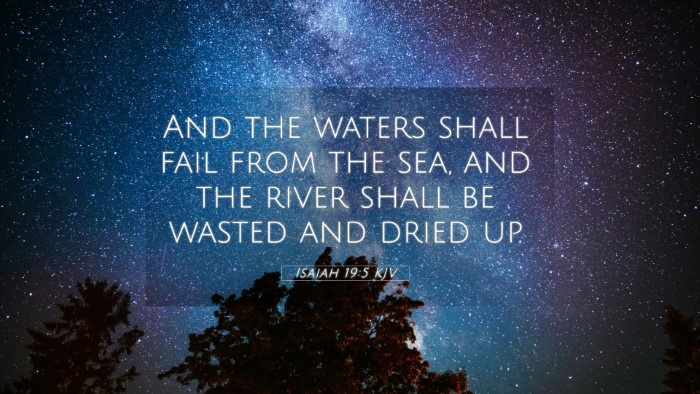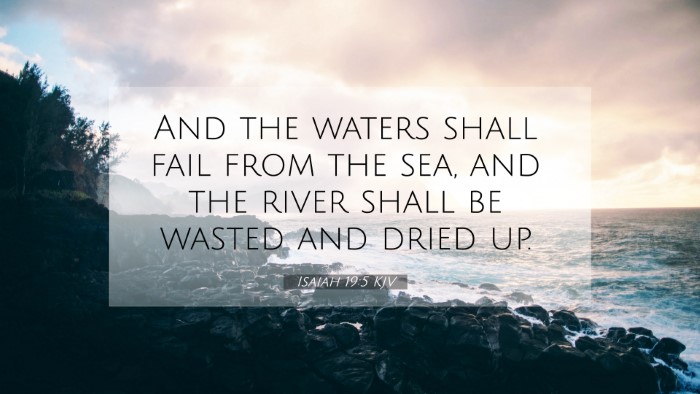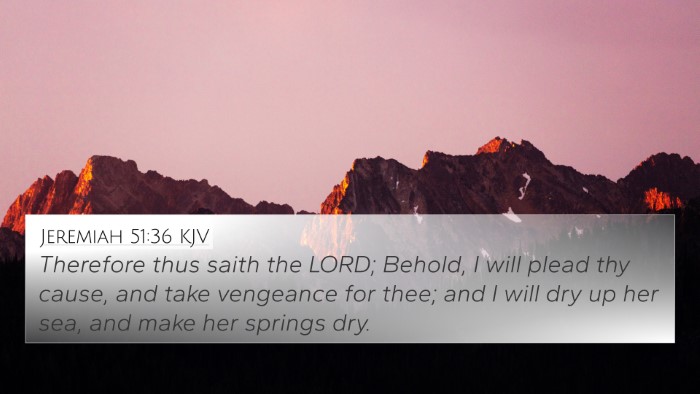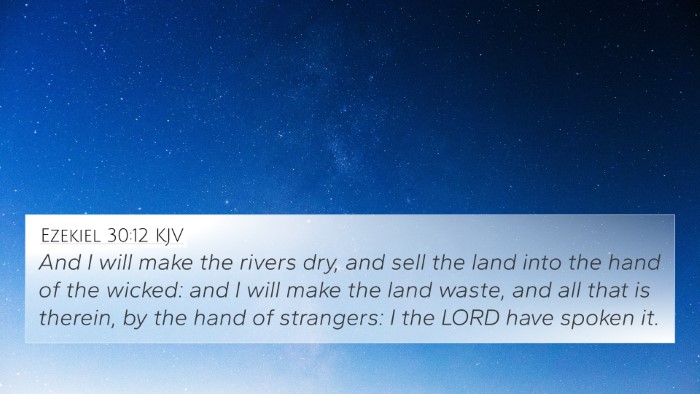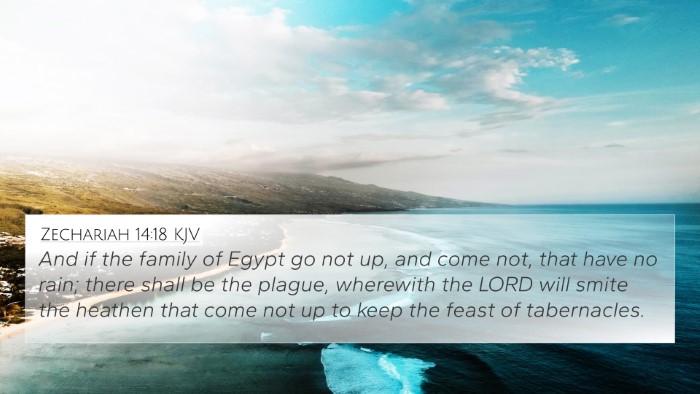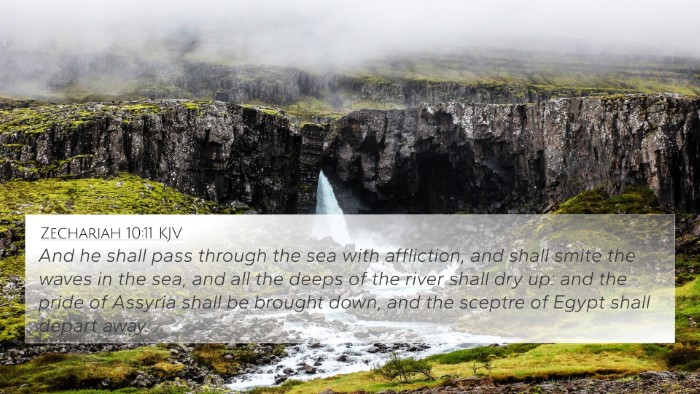Understanding Isaiah 19:5
Isaiah 19:5 states, "And the waters shall fail from the sea, and the river shall be wasted and dried up." This verse portrays a bleak picture of desolation, particularly regarding the Nile River, which is crucial to the life and economy of Egypt. The implications of this imagery are significant, representing divine judgment and the resulting social and environmental chaos.
Commentary Insights
Insights from public domain commentaries shed light on the meaning of this verse:
- Matthew Henry: Henry emphasizes that the drying up of the river signifies a cessation of life and prosperity for the Egyptians. This reflects God's judgment on their reliance on the Nile rather than on Him.
- Albert Barnes: Barnes elucidates that the drying up of the waters could symbolize impending calamities and divine retribution, pointing towards people being left to their own devices without the sustaining grace of God.
- Adam Clarke: Clarke notes that the desiccation of the waters can also reflect a future state of being, where the energies of the Egyptians would be parched due to their idolatrous practices and turning away from God.
Thematic Connections
This verse connects to various themes in the Bible, especially concerning divine judgment and the natural consequences of turning away from God:
- Cross-Reference 1: Ezekiel 30:12 - This verse discusses God drying up the rivers of Egypt.
- Cross-Reference 2: Joel 1:20 - The lamentation of the desolation that affects the land.
- Cross-Reference 3: Revelation 16:4 - God’s judgments in a time of tribulation include actions against waters.
- Cross-Reference 4: Exodus 7:17 - The first plague upon Egypt where the waters were turned into blood.
- Cross-Reference 5: Jeremiah 46:7-8 - Reference to the Nile being a source of strength for Egypt, which will be destroyed.
- Cross-Reference 6: Psalms 78:44 - Reminds of God's power over the waters in Egypt.
- Cross-Reference 7: Isaiah 11:15 - God’s control over the waters and nations for His purposes.
- Cross-Reference 8: Isaiah 44:27 - God addressing the deceptions of idolatry affecting nature.
- Cross-Reference 9: Isaiah 17:12-14 - A broader picture of destruction coming upon the nations.
- Cross-Reference 10: Matthew 24:7 - Reflects on the natural disasters as signs of the end times.
Interpretation and Application
The desolation described in Isaiah 19:5 serves as a reminder of the consequences of turning away from God. Just as the Egyptians relied on their river, people today may rely on worldly comforts rather than on God's provision. This verse calls for introspection regarding dependencies in one's life and highlights the importance of a relationship with the Creator.
Cross-referencing Biblical texts enhances our understanding of Isaiah 19:5, revealing deeper connections and themes that resonate throughout Scripture. By exploring these connections, we gain insights into the nature of God's judgments and the firm reliance believers must have on Him for sustenance and life.
Tools for Bible Cross-Referencing
For anyone looking to delve deeper into cross-referencing Bible verses, there are various tools available:
- Bible Concordance: Helps locate specific verses and their connections.
- Bible Cross-Reference Guide: Provides systematic cross-referencing of themes and verses.
- Cross-Reference Bible Study: Methods for exploring Scripture through thematic connections.
- Bible Reference Resources: Comprehensive resources for linking scriptures together.
Conclusion
Isaiah 19:5 is not only a statement of impending judgment but also a pivotal point in understanding the relationship between divine justice and earthly reliance. Through comparative Bible verse analysis and thematic links, believers today can learn profound lessons about faith, judgment, and the importance of spiritual sustenance over earthly dependence.
